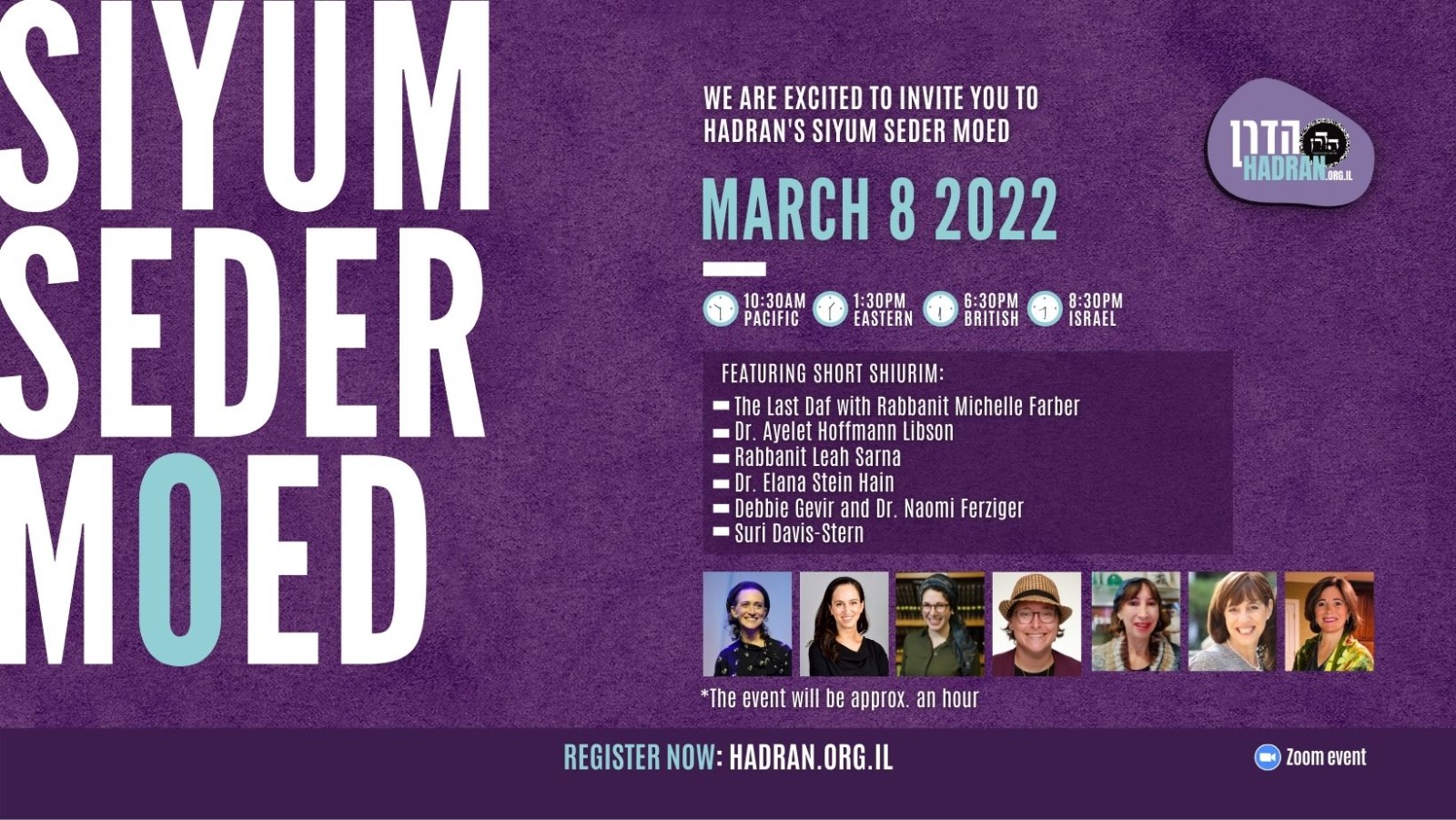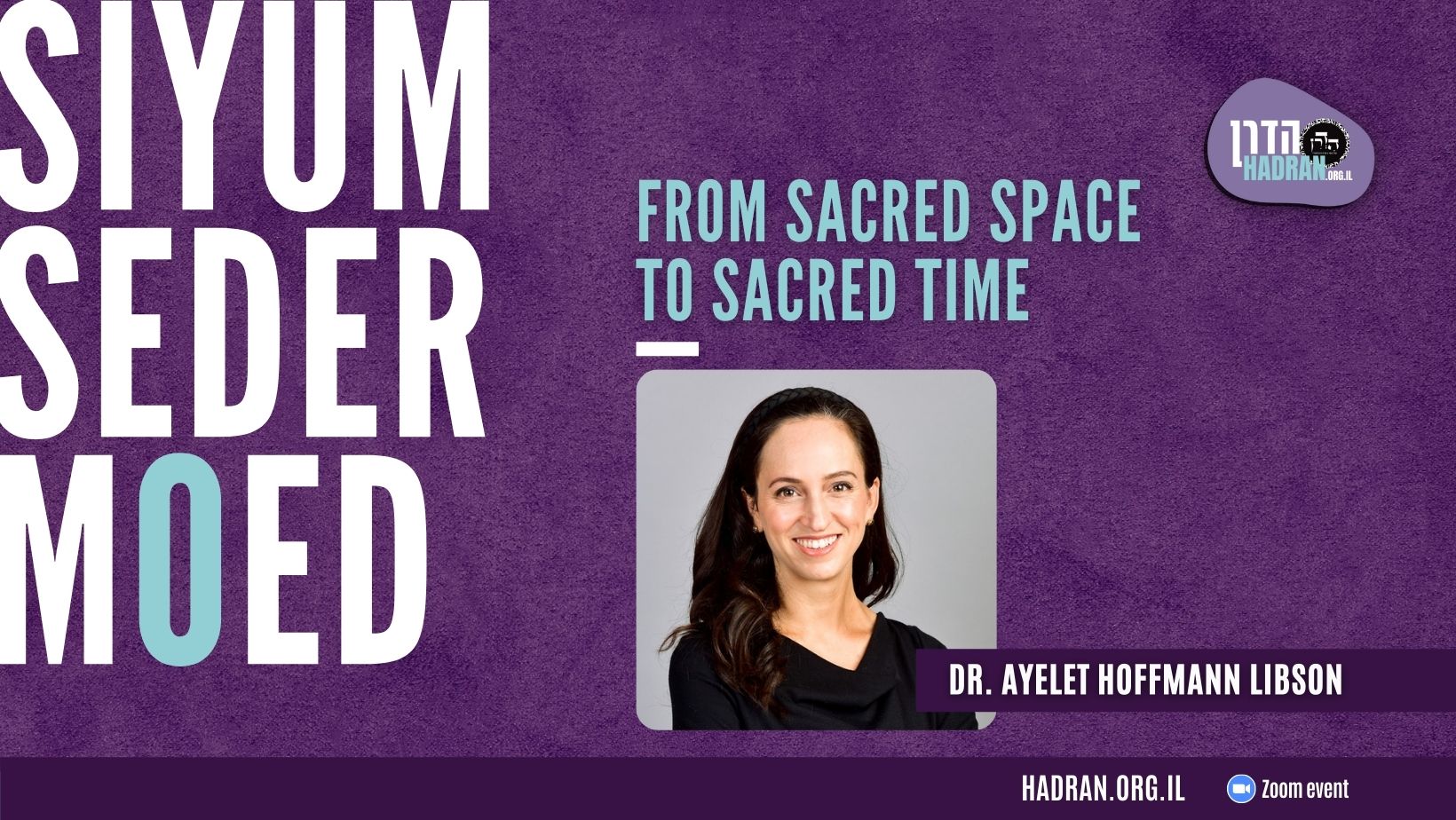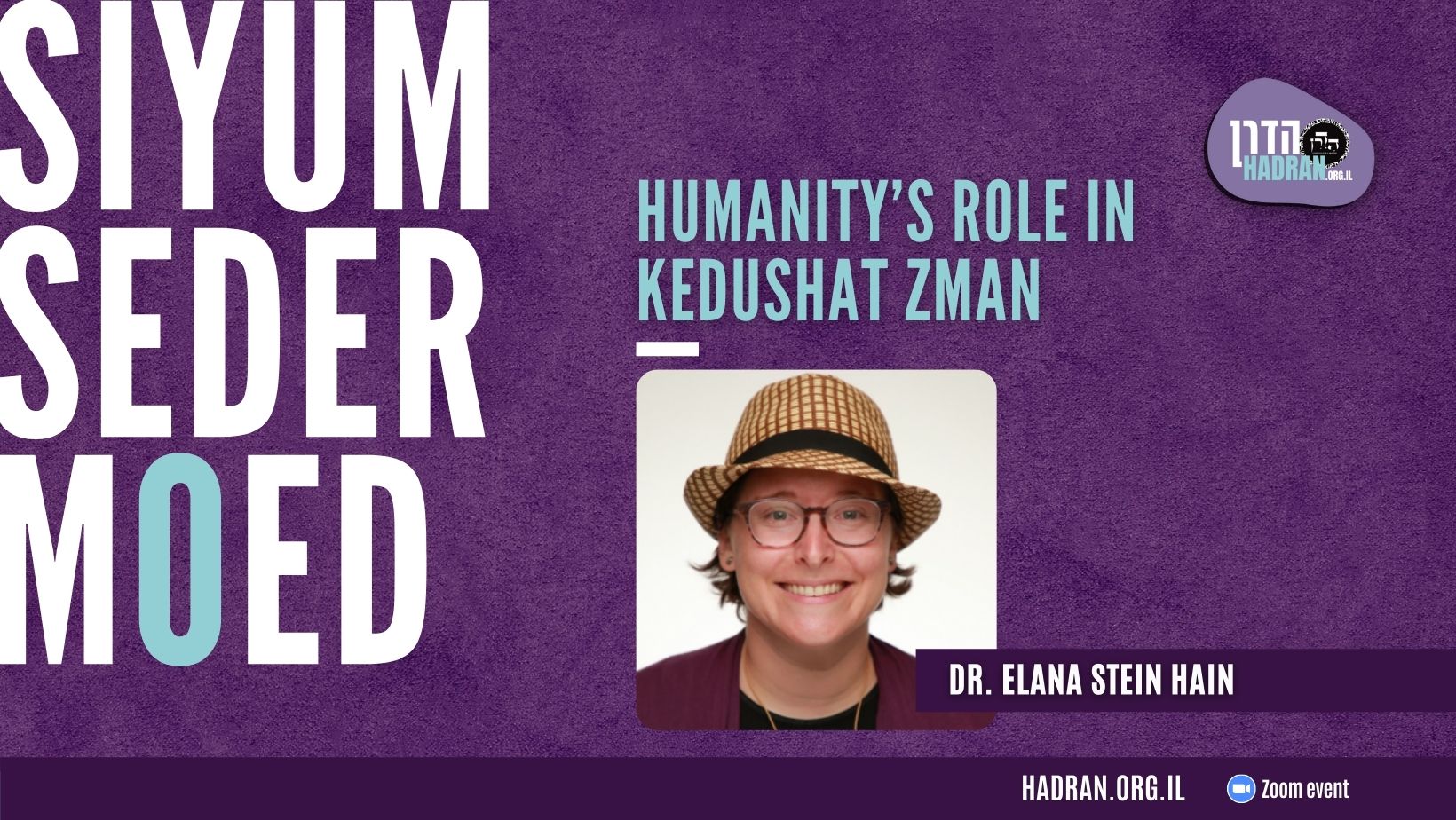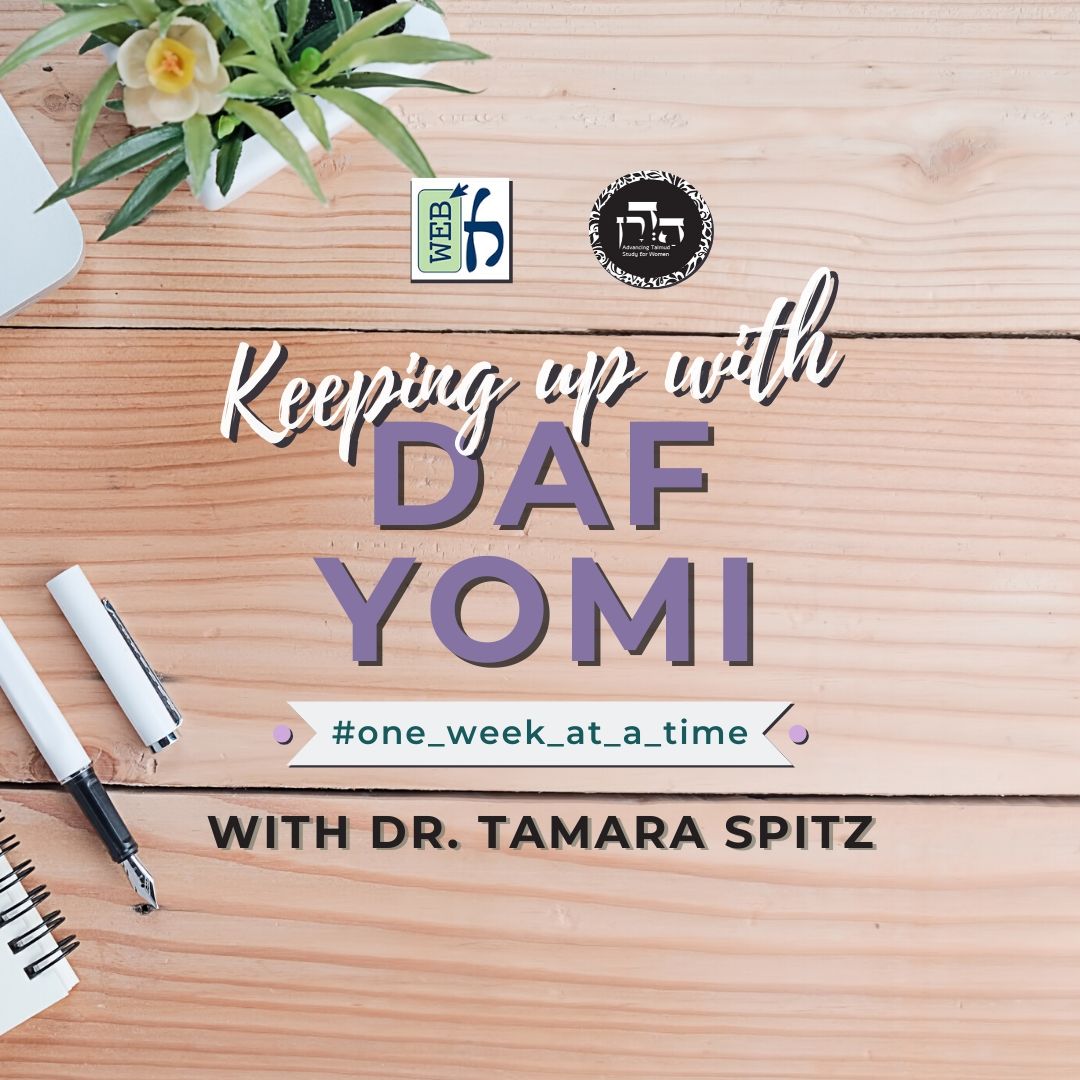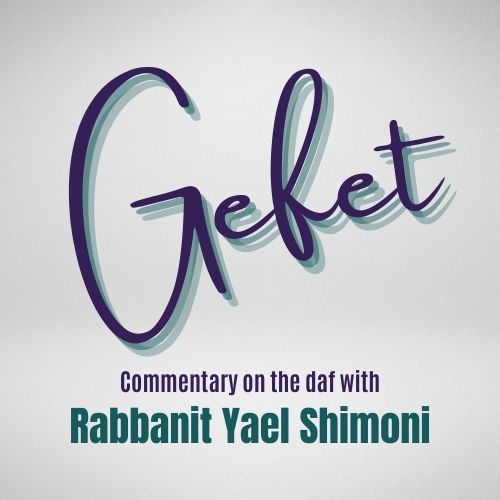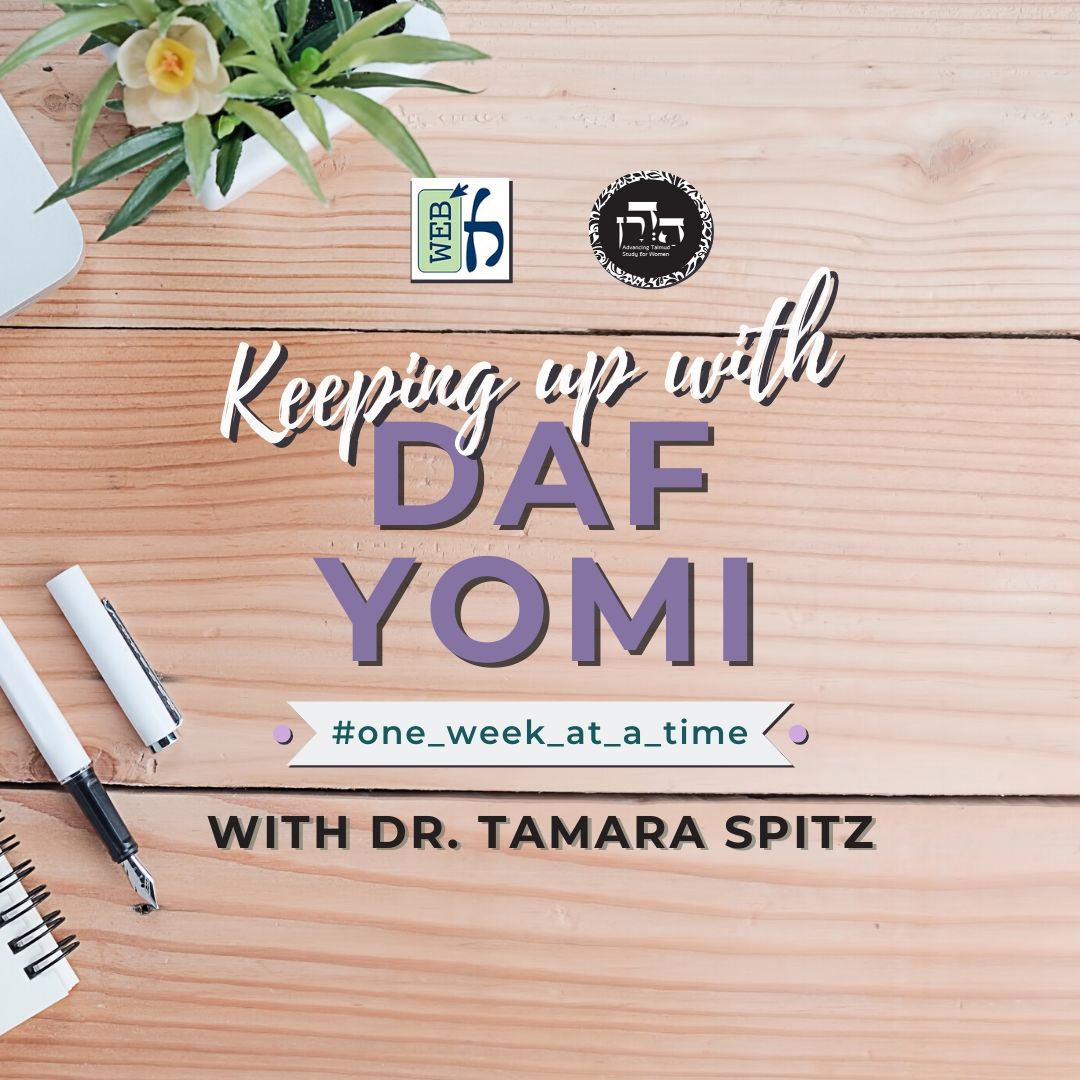Chagigah 4
כְּמִי שֶׁנָּגַח שׁוֹר חֲמוֹר וְגָמָל, וְנַעֲשָׂה מוּעָד לַכֹּל. אָמַר רַב פָּפָּא: אִי שְׁמִיעַ לֵיהּ לְרַב הוּנָא הָא דְּתַנְיָא: אֵי זֶהוּ שׁוֹטֶה — זֶה הַמְאַבֵּד כׇּל מַה שֶּׁנּוֹתְנִים לוֹ, הֲוָה הָדַר בֵּיהּ.
like the actions of a forewarned ox that gored an ox, a donkey, and a camel. Since this ox gored three different animals on three separate occasions, it is considered predisposed to gore and becomes forewarned for every type of animal. Likewise, if someone performs three different deranged actions, it is assumed that there is no logical reason for his behavior and he is classified as an imbecile. Rav Pappa said: If Rav Huna had heard that which is taught in a baraita: Who is an imbecile? This is one who destroys whatever is given to him, he would have retracted his statement that one is an imbecile only if he performs three deranged actions.
אִיבַּעְיָא לְהוּ: כִּי הֲוָה הָדַר בֵּיהּ — מִמְּקָרֵע כְּסוּתוֹ הוּא דַּהֲוָה הָדַר בֵּיהּ, דְּדָמְיָא לְהָא, אוֹ דִלְמָא: מִכּוּלְּהוּ הֲוָה הָדַר? תֵּיקוּ.
A dilemma was raised before the Sages with regard to Rav Pappa’s statement: When Rav Pappa claims that Rav Huna would have retracted his statement, would he have retracted only from the case of one who tears his garments, as this person is similar to one who destroys whatever is given to him? Or perhaps he would have retracted his opinion with regard to all of the signs of an imbecile? The Gemara states that the dilemma shall stand unresolved, as no answer was found.
וְטוּמְטוּם וְאַנְדְּרוֹגִינוֹס כּוּ׳. תָּנוּ רַבָּנַן: ״זְכוּר״ לְהוֹצִיא אֶת הַנָּשִׁים. ״זְכוּרְךָ״, לְהוֹצִיא טוּמְטוּם וְאַנְדְּרוֹגִינוֹס. ״כָּל זְכוּרְךָ״, לְרַבּוֹת אֶת הַקְּטַנִּים.
§ The mishna taught: And a tumtum and a hermaphrodite are exempt from the mitzva of appearance in the Temple. The Sages taught, with regard to the verse: “Three occasions in the year all your males will appear before the Lord God” (Exodus 23:17), had the verse simply said “males,” this would serve to exclude women from this mitzva. By specifying “your males,” it comes to exclude a tumtum and a hermaphrodite as well. Furthermore, when the verse adds “all your males,” this serves to include male minors.
אָמַר מָר: ״זְכוּר״, לְהוֹצִיא אֶת הַנָּשִׁים. הָא לְמָה לִי קְרָא? מִכְּדִי מִצְוַת עֲשֵׂה שֶׁהַזְּמַן גְּרָמָא הוּא, וְכׇל מִצְוַת עֲשֵׂה שֶׁהַזְּמַן גְּרָמָא נָשִׁים פְּטוּרוֹת!
The Master said in the baraita: “Males” comes to exclude women. The Gemara asks: Why do I need a verse for this halakha? After all, the obligation of appearance on a Festival is a positive, time-bound mitzva, and women are exempt from any positive, time-bound mitzva.
אִצְטְרִיךְ, סָלְקָא דַּעְתָּךְ אָמֵינָא: נֵילַף ״רְאִיָּיה״ ״רְאִיָּיה״ מֵהַקְהֵל; מָה לְהַלָּן נָשִׁים חַיָּיבוֹת, אַף כָּאן נָשִׁים חַיָּיבוֹת, קָא מַשְׁמַע לַן.
The Gemara answers: This statement was necessary, as otherwise it could enter your mind to say: Let us derive by means of a verbal analogy between the term: Appearance, which appears here, and the term: Appearance, stated with regard to the mitzva of assembly (Deuteronomy 31:11), which is also a positive, time-bound mitzva. Just as there, women are obligated in the mitzva of assembly, so too here, women are obligated in the mitzva of appearance on the Festival. Therefore, the baraita teaches us that women are exempt.
אָמַר מָר: ״זְכוּרְךָ״, לְהוֹצִיא טוּמְטוּם וְאַנְדְּרוֹגִינוֹס. בִּשְׁלָמָא אַנְדְּרוֹגִינוֹס — אִצְטְרִיךְ, סָלְקָא דַּעְתָּךְ אָמֵינָא: הוֹאִיל וְאִית לֵיהּ צַד זַכְרוּת — לִיחַיַּיב, קָא מַשְׁמַע לַן דִּבְרִיָּה בִּפְנֵי עַצְמוֹ הוּא.
The Master said in the baraita: “Your males” comes to exclude a tumtum and a hermaphrodite. The Gemara asks: Granted, the exclusion of a hermaphrodite was necessary, as it could enter your mind to say that since he possesses an aspect of masculinity, i.e., he has a male sexual organ, he should be obligated like a male. Therefore, the baraita teaches us that a hermaphrodite is a being unto itself, which is neither male nor female.
אֶלָּא טוּמְטוּם, סְפֵיקָא הוּא — מִי אִצְטְרִיךְ קְרָא לְמַעוֹטֵי סְפֵיקָא? אָמַר אַבָּיֵי: כְּשֶׁבֵּיצָיו מִבַּחוּץ.
However, as the status of a tumtum, who lacks external sexual organs, is a halakhic uncertainty, is a verse necessary to exclude an uncertainty? Abaye said: It is referring to a case when the testicles of a tumtum are on the outside, although his penis is not visible. The verse teaches that this tumtum is not obligated in the mitzva of appearance, despite the fact that he is certainly male.
אָמַר מָר: ״כׇּל זְכוּרְךָ״, לְרַבּוֹת אֶת הַקְּטַנִּים. וְהָתְנַן: חוּץ מֵחֵרֵשׁ שׁוֹטֶה וְקָטָן! אָמַר אַבָּיֵי, לָא קַשְׁיָא: כָּאן בְּקָטָן שֶׁהִגִּיעַ לְחִינּוּךְ, כָּאן בְּקָטָן שֶׁלֹּא הִגִּיעַ לְחִינּוּךְ. קָטָן שֶׁהִגִּיעַ לְחִינּוּךְ — דְּרַבָּנַן הִיא! אִין הָכִי נָמֵי, וּקְרָא אַסְמַכְתָּא בְּעָלְמָא.
The Master said in the baraita: “All your males” comes to include minors. The Gemara asks: Didn’t we learn in the mishna: All are obligated to appear, except for a deaf-mute, an imbecile, and a minor? Abaye said: This is not difficult. Here, the baraita that obligates minors is referring to a minor who has reached the age of training in mitzvot. There, the mishna is referring to a minor who has not yet reached the age of training in mitzvot, and therefore he is exempt from the mitzva of appearance. The Gemara asks: The obligation of a minor who has reached the age of training is one that applies by rabbinic law. How then can the baraita derive this halakha from a verse? The Gemara answers: Yes, it is indeed so, and the verse is a mere support for this rabbinic obligation.
וְאֶלָּא קְרָא לְמַאי אֲתָא? לִכְדַאֲחֵרִים. דִּתְנַן, אֲחֵרִים אוֹמְרִים: הַמְקַמֵּץ, וְהַמְצָרֵף נְחֹשֶׁת, וְהַבּוּרְסִי — פְּטוּרִין מִן הָרְאִיָּיה, מִשּׁוּם שֶׁנֶּאֱמַר: ״כׇּל זְכוּרְךָ״, מִי שֶׁיָּכוֹל לַעֲלוֹת עִם כׇּל זְכוּרְךָ. יָצְאוּ אֵלּוּ, שֶׁאֵינָן רְאוּיִין לַעֲלוֹת עִם כׇּל זְכוּרְךָ.
The Gemara asks: Rather, for what purpose does the verse: “All your males,” come? It comes to teach that which Aḥerim taught. As it is taught in a baraita: Aḥerim say that a scrimper, one who gathers dog feces to give them to tanners for the purpose of tanning hides; and a melder of copper, who purifies copper from dross; and a tanner of hides, are all exempt from the mitzva of appearance, as their occupation inflicts upon them a particularly unpleasant odor. This is because it is stated: “All your males,” which indicates that only one who is able to ascend with all your males is obligated, excluding those who are not suited to ascend with all your males, as people avoid their company.
נָשִׁים וַעֲבָדִים שֶׁאֵינָן מְשׁוּחְרָרִים וְכוּ׳. בִּשְׁלָמָא נָשִׁים כְּדַאֲמַרַן, אֶלָּא עֲבָדִים מְנָלַן? אָמַר רַב הוּנָא, אָמַר קְרָא: ״אֶל פְּנֵי הָאָדוֹן ה׳״ — מִי שֶׁאֵין לוֹ אֶלָּא אָדוֹן אֶחָד, יָצָא זֶה שֶׁיֵּשׁ לוֹ אָדוֹן אַחֵר.
§ The mishna taught that women and slaves who are not emancipated are exempt from the mitzva of appearance. The Gemara asks: Granted, women are exempt, as we said earlier that this is derived from the phrase: “Your males.” However, with regard to slaves, from where do we derive that they are exempt? Rav Huna said that the verse states: “Before the Lord God” (Exodus 23:17). This indicates that one who has only one Master is obligated, which excludes this slave, who has another master.
הָא לְמָה לִי קְרָא? מִכְּדֵי כׇּל מִצְוָה שֶׁהָאִשָּׁה חַיֶּיבֶת בָּהּ — עֶבֶד חַיָּיב בָּהּ, כׇּל מִצְוָה שֶׁאֵין הָאִשָּׁה חַיֶּיבֶת בָּהּ — אֵין הָעֶבֶד חַיָּיב בָּהּ, דְּגָמַר ״לָהּ״ ״לָהּ״ מֵאִשָּׁה!
The Gemara asks: Why do I need a verse to teach this halakha? After all, with regard to every mitzva in which a woman is obligated, a slave is also obligated in that mitzva; and with regard to every mitzva in which a woman is not obligated, a slave is not obligated in it either. The reason for this principle is that it is derived by means of a verbal analogy between the phrase: “To her” (Leviticus 19:20), written with regard to a designated maidservant, and the phrase: “To her” (Deuteronomy 24:3), written with regard to a divorced woman.
אָמַר רָבִינָא: לֹא נִצְרְכָה אֶלָּא לְמִי שֶׁחֶצְיוֹ עֶבֶד וְחֶצְיוֹ בֶּן חוֹרִין. דַּיְקָא נָמֵי דְּקָתָנֵי: נָשִׁים וַעֲבָדִים שֶׁאֵינָן מְשׁוּחְרָרִין. מַאי שֶׁאֵינָן מְשׁוּחְרָרִין? אִילֵּימָא שֶׁאֵינָן מְשׁוּחְרָרִין כְּלָל — לִיתְנֵי ״עֲבָדִים״ סְתָמָא! אֶלָּא לָאו, שֶׁאֵינָן מְשׁוּחְרָרִין לִגְמָרֵי, וּמַאי נִינְהוּ — מִי שֶׁחֶצְיוֹ עֶבֶד וְחֶצְיוֹ בֶּן חוֹרִין. שְׁמַע מִינַּהּ.
Ravina said: This verse is necessary only to teach the exemption of one who is half-slave half-freeman. The Gemara notes that the language of the mishna is also precise, as it teaches: Women and slaves who are not emancipated. What is the purpose of specifying: Who are not emancipated? If we say that this means that they are not emancipated at all, let it simply teach: Slaves, without any further description. Rather, is it not the case that the mishna is referring to slaves who are not entirely emancipated? And who are these slaves? One who is half-slave half-freeman. The Gemara concludes: Learn from this that this is correct.
וְהַחִיגֵּר וְהַסּוֹמֵא וְחוֹלֶה וְהַזָּקֵן. תָּנוּ רַבָּנַן: ״רְגָלִים״, פְּרָט לְבַעֲלֵי קַבִּין! דָּבָר אַחֵר: ״רְגָלִים״, פְּרָט לְחִיגֵּר וּלְחוֹלֶה וּלְסוֹמֵא וּלְזָקֵן וּלְשֶׁאֵינוֹ יָכוֹל לַעֲלוֹת בְּרַגְלָיו. וְשֶׁאֵינוֹ יָכוֹל לַעֲלוֹת בְּרַגְלָיו לְאֵתוֹיֵי מַאי? אָמַר רָבָא: לְאֵתוֹיֵי
The mishna further taught: And the lame, and the blind, and the sick, and the old are all exempt from the mitzva of appearance. The Sages taught: “Times [regalim]” (Exodus 23:14) alludes to the use of one’s feet [raglayim], and therefore it excludes people with artificial legs. Although they are able to walk, they are exempt from traveling, as they do not have feet. Alternatively, the term “regalim” comes to exclude the lame, the sick, the blind, the old, and one who is unable to ascend on his own feet. The Gemara asks: The last category of one who is unable to ascend on his feet, comes to add what? The baraita already taught that the lame and the sick are exempt. Rava said: It comes to add
מְפַנְּקִי, דִּכְתִיב: ״כִּי תָבֹאוּ לֵרָאוֹת פָּנָי מִי בִקֵּשׁ זֹאת מִיֶּדְכֶם רְמוֹס חֲצֵרָי״.
a delicate man, who cannot walk without shoes. As it is written: “When you come to appear before Me, who has required this at your hand, to trample My courts?” (Isaiah 1:12). Entering the Temple with shoes is described by the prophet as trampling, and therefore one who cannot enter barefoot is exempt from the mitzva of appearance.
תָּנָא: הֶעָרֵל וְהַטָּמֵא פְּטוּרִין מִן הָרְאִיָּיה. בִּשְׁלָמָא טָמֵא — דִּכְתִיב: ״וּבָאתָ שָּׁמָּה״ ״וַהֲבֵאתֶם שָׁמָּה״, כׇּל שֶׁיֶּשְׁנוֹ בְּבִיאָה — יֶשְׁנוֹ בַּהֲבָאָה, וְכׇל שֶׁאֵינוֹ בְּבִיאָה — אֵינוֹ בַּהֲבָאָה
It is taught: The uncircumcised and the ritually impure are exempt from the mitzva of appearance. The Gemara comments: Granted, a ritually impure person is exempt, as it is written: “And there you shall come” (Deuteronomy 12:5), followed by: “And there you shall bring” (Deuteronomy 12:6). The juxtaposition of these verses teaches: Anyone included in the mitzva of coming, i.e., anyone who may enter the Temple, is also included in the obligation of bringing offerings; and anyone not included in the mitzva of coming is not included in the obligation of bringing either. Since it is prohibited for a person who is ritually impure to enter the Temple, he is also exempt from the obligation to bring a burnt-offering of appearance.
אֶלָּא עָרֵל מְנָלַן? הָא מַנִּי רַבִּי עֲקִיבָא הִיא, דִּמְרַבֵּי לְעָרֵל כְּטָמֵא. דְּתַנְיָא, רַבִּי עֲקִיבָא אוֹמֵר: ״אִישׁ אִישׁ״, לְרַבּוֹת אֶת הֶעָרֵל.
However, with regard to the uncircumcised, from where do we derive that he is exempt? The Gemara answers: In accordance with whose opinion is this baraita? It is in accordance with the opinion of Rabbi Akiva, who amplifies the halakha so that the uncircumcised is included in the same category as the ritually impure. As it is taught in a baraita: Rabbi Akiva says, with regard to the verse: “Any man [ish ish] of the seed of Aaron that is a leper or has an issue; he shall not eat of the sacred things” (Leviticus 22:4), the double use of the term: “Ish,” comes to include the uncircumcised. Like the ritually impure, the uncircumcised may neither eat sacrificial meat nor bring offerings to the Temple.
תָּנוּ רַבָּנַן: טָמֵא פָּטוּר מִן הָרְאִיָּיה, דִּכְתִיב: ״וּבָאתָ שָּׁמָּה״ ״וַהֲבֵאתֶם שָׁמָּה״. כׇּל שֶׁיֶּשְׁנוֹ בְּבִיאָה — יֶשְׁנוֹ בַּהֲבָאָה, וְכׇל שֶׁאֵינוֹ בְּבִיאָה — אֵינוֹ בַּהֲבָאָה.
The Sages taught: A ritually impure person is exempt from the mitzva of appearance, as it is written: “And there shall you come,” “and there you shall bring.” Anyone included in coming is also included in the obligation of bringing offerings; and anyone not included in coming is not included in the obligation of bringing either.
רַבִּי יוֹחָנָן בֶּן דַּהֲבַאי אוֹמֵר מִשּׁוּם רַבִּי יְהוּדָה: סוֹמֵא בְּאַחַת מֵעֵינָיו פָּטוּר מִן הָרְאִיָּיה, שֶׁנֶּאֱמַר: ״יִרְאֶה״ ״יֵרָאֶה״, כְּדֶרֶךְ שֶׁבָּא לִרְאוֹת כָּךְ בָּא לֵירָאוֹת. מַה בָּא לִרְאוֹת — בִּשְׁתֵּי עֵינָיו, אַף לֵירָאוֹת — בִּשְׁתֵּי עֵינָיו.
Rabbi Yoḥanan ben Dehavai says in the name of Rabbi Yehuda: One who is blind in one of his eyes is exempt from the mitzva of appearance, as it is stated: “Three times a year all your males shall appear [yera’e] before the Lord God” (Exodus 23:17). Since there are no vowels in the text, this can be read as: All your males will see [yireh] the Lord God. This teaches that in the same manner that one comes to see, so he comes to be seen: Just as one comes to see with both his eyes, so too the obligation to be seen applies only to one who comes with both his eyes. Therefore, one who is blind in one eye is exempt from the mitzva of appearance in the Temple.
רַב הוּנָא כִּי מָטֵי לְהַאי קְרָא ״יִרְאֶה״ ״יֵרָאֶה״, בָּכֵי. אָמַר: עֶבֶד שֶׁרַבּוֹ מְצַפֶּה לוֹ לִרְאוֹתוֹ יִתְרַחֵק מִמֶּנּוּ, דִּכְתִיב: ״כִּי תָבוֹאוּ לֵרָאוֹת פָּנָי מִי בִקֵּשׁ זֹאת מִיֶּדְכֶם רְמוֹס חֲצֵרָי״.
The Gemara relates that when Rav Huna reached this verse, which can be read as: “Will see” [yireh] and “shall appear” [yera’e], he cried. He said: Can it happen to a slave whose master expects to see him, that the master will eventually distance himself from him and not want him anymore? As it is written: “When you come to appear before Me, who has required this at your hand, to trample My courts?” (Isaiah 1:12).
רַב הוּנָא כִּי מָטֵי לְהַאי קְרָא, בָּכֵי: ״וְזָבַחְתָּ שְׁלָמִים וְאָכַלְתָּ שָּׁם״, עֶבֶד שֶׁרַבּוֹ מְצַפֶּה לֶאֱכוֹל עַל שֻׁלְחָנוֹ יִתְרַחֵק מִמֶּנּוּ? דִּכְתִיב: ״לָמָּה לִּי רוֹב זִבְחֵיכֶם יֹאמַר ה׳״.
Similarly, when Rav Huna reached this verse, he cried: “And you shall sacrifice peace-offerings, and you shall eat there” (Deuteronomy 27:7). Can it happen to a slave whose master expects him to eat at his table, that his master will eventually distance himself from him? As it is written: “To what purpose is the multitude of your offerings to Me? says the Lord” (Isaiah 1:11).
רַבִּי אֶלְעָזָר כִּי מָטֵי לְהַאי קְרָא, בָּכֵי: ״וְלֹא יָכְלוּ אֶחָיו לַעֲנוֹת אֹתוֹ כִּי נִבְהֲלוּ מִפָּנָיו״, וּמָה תּוֹכֵחָה שֶׁל בָּשָׂר וָדָם כָּךְ, תּוֹכֵחָה שֶׁל הַקָּדוֹשׁ בָּרוּךְ הוּא — עַל אַחַת כַּמָּה וְכַמָּה. רַבִּי אֶלְעָזָר כִּי מָטֵי לְהַאי קְרָא, בָּכֵי: ״וַיֹּאמֶר שְׁמוּאֵל אֶל שָׁאוּל לָמָּה הִרְגַּזְתַּנִי לְהַעֲלוֹת אוֹתִי״, וּמָה שְׁמוּאֵל הַצַּדִּיק הָיָה מִתְיָירֵא מִן הַדִּין, אָנוּ — עַל אַחַת כַּמָּה וְכַמָּה!
The Gemara similarly relates: When Rabbi Elazar reached this verse, he cried: “And his brethren could not answer him, for they were affrighted at his presence” (Genesis 45:3). He said, in explanation of his emotional reaction: If the rebuke of a man of flesh and blood was such that the brothers were unable to respond, when it comes to the rebuke of the Holy One, Blessed be He, all the more so. When Rabbi Elazar reached this verse, he cried: “And Samuel said to Saul: Why have you disquieted me, to bring me up” (I Samuel 28:15). He said: If Samuel the righteous was afraid of judgment when he was raised by necromancy, as he thought he was being summoned for a Divine judgment, all the more so that we should be afraid.
שְׁמוּאֵל מַאי הִיא — דִּכְתִיב: ״וַתֹּאמֶר הָאִשָּׁה אֶל שָׁאוּל אֱלֹהִים רָאִיתִי עוֹלִים״. ״עוֹלִים״ — תְּרֵי מַשְׁמַע: חַד שְׁמוּאֵל, וְאִידָּךְ — דַּאֲזַל שְׁמוּאֵל וְאַתְיֵיהּ לְמֹשֶׁה בַּהֲדֵיהּ. אֲמַר לֵיהּ: דִּלְמָא חַס וְשָׁלוֹם לְדִינָא מִתְבְּעֵינָא, קוּם בַּהֲדַאי, דְּלֵיכָּא מִילְּתָא דִּכְתַבְתְּ בְּאוֹרָיְיתָא דְּלָא קַיֵּימְתַּיהּ.
The Gemara asks: In the case of Samuel, what is it that he feared? As it is written: “And the woman said to Saul, I see a godlike being coming up [olim] out of the earth” (I Samuel 28:13). “Olim,” in the plural form, indicates that there were two of them. One of them was Samuel, but the other, who was he? The Gemara explains that Samuel went and brought Moses with him. He said to Moses: Perhaps, Heaven forbid, I was summoned for judgment by God; stand with me and testify on my behalf that there is nothing that you wrote in the Torah that I did not fulfill.
רַבִּי אַמֵּי כִּי מָטֵי לְהַאי קְרָא, בָּכֵי: ״יִתֵּן בֶּעָפָר פִּיהוּ אוּלַי יֵשׁ תִּקְוָה״, אָמַר: כּוּלֵּי הַאי וְ״אוּלַי״?! רַבִּי אַמֵּי כִּי מָטֵי לְהַאי קְרָא, בָּכֵי: ״בַּקְּשׁוּ צֶדֶק בַּקְּשׁוּ עֲנָוָה אוּלַי תִּסָּתְרוּ בְּיוֹם אַף ה׳״, אָמַר: כּוּלֵּי הַאי וְ״אוּלַי״?! רַבִּי אַסִּי כִּי מָטֵי לְהַאי קְרָא, בָּכֵי: ״שִׂנְאוּ רָע וְאֶהֱבוּ טוֹב וְהַצִּיגוּ בַשַּׁעַר מִשְׁפָּט אוּלַי יֶחֱנַן ה׳ [אֱלֹהֵי] צְבָאוֹת״, כּוּלֵּי הַאי וְ״אוּלַי״?!
When Rabbi Ami reached this verse, he cried: “Let him put his mouth in the dust, perhaps there may be hope” (Lamentations 3:29). He said: A sinner suffers through all this punishment and only perhaps there may be hope? When Rabbi Ami reached this verse, he cried: “Seek righteousness, seek humility; perhaps you shall be hidden on the day of the Lord’s anger”(Zephaniah 2:3). He said: All of this is expected of each individual, and only perhaps God’s anger may be hidden? Likewise, when Rabbi Asi reached this verse, he cried: “Hate the evil, and love the good, and establish justice in the gate; perhaps the Lord, the God of hosts, will be gracious” (Amos 5:15). He said: All of this, and only perhaps?
רַב יוֹסֵף כִּי מָטֵי לְהַאי קְרָא, בָּכֵי: ״וְיֵשׁ נִסְפֶּה בְּלֹא מִשְׁפָּט״, אָמַר: מִי אִיכָּא דְּאָזֵיל בְּלָא זִמְנֵיהּ? אִין, כִּי הָא דְּרַב בִּיבִי בַּר אַבָּיֵי הֲוָה שְׁכִיחַ גַּבֵּיהּ מַלְאַךְ הַמָּוֶת. אֲמַר לֵיהּ לִשְׁלוּחֵיהּ: זִיל אַיְיתִי לִי מִרְיָם מְגַדְּלָא שְׂיעַר נַשְׁיָיא. אֲזַל, אַיְיתִי לֵיהּ מִרְיָם מְגַדְּלָא דַּרְדְּקֵי.
When Rav Yosef reached this verse, he cried: “But there are those swept away without justice” (Proverbs 13:23). He said: Is there one who goes before his time and dies for no reason? The Gemara answers: Yes, like this incident of Rav Beivai bar Abaye, who would be frequented by the company of the Angel of Death and would see how people died at the hands of this angel. The Angel of Death said to his agent: Go and bring me, i.e., kill, Miriam the raiser, i.e., braider, of women’s hair. He went, but instead brought him Miriam, the raiser of babies.
אֲמַר לֵיהּ: אֲנָא מִרְיָם מְגַדְּלָא שֵׂיעָר נְשַׁיָּיא אֲמַרִי לָךְ! אֲמַר לֵיהּ: אִי הָכִי, אַהְדְּרַהּ! אֲמַר לֵיהּ: הוֹאִיל וְאַיְיתִיתַהּ — לֶיהֱוֵי לְמִנְיָינָא! אֶלָּא הֵיכִי יְכֵלְתְּ לַהּ? הֲוָת נְקִיטָא מְתָארָא בִּידַהּ וַהֲוָת קָא שָׁגְרָא
The Angel of Death said to him: I told you to bring Miriam, the raiser of women’s hair. His agent said to him: If so, return her to life. He said to him: Since you have already brought her, let her be counted toward the number of deceased people. Apparently, this woman died unintentionally. Rav Beivai asked the agent: But as her time to die had not yet arrived, how were you able to kill her? The agent responded that he had the opportunity, as she was holding a shovel in her hand and with it she was lighting



